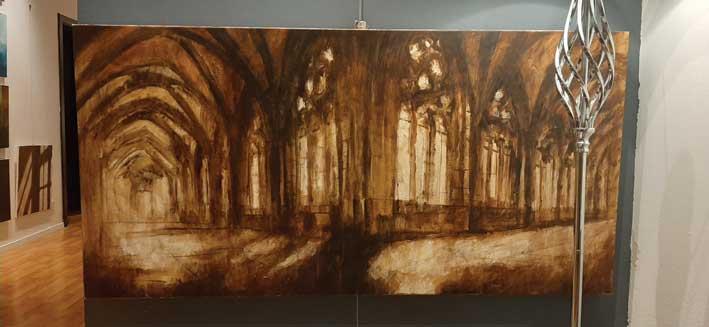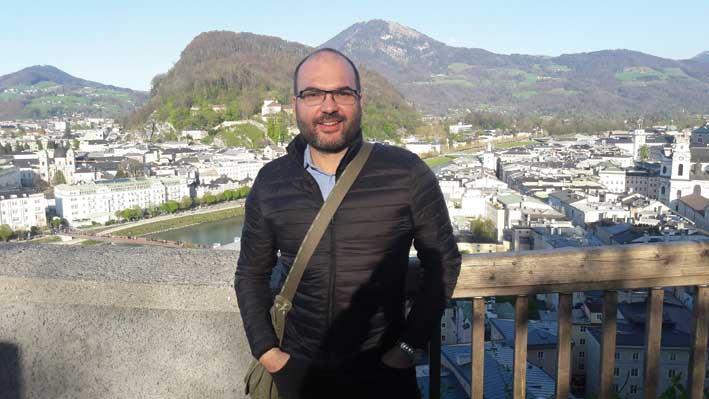"Rainbows and the slogan '#Alt blir bra' (everything will be fine) are everywhere, God's promise after The Great Flood...
The Covid-19 scare has brought out the essence of the Norwegians. Genuinely patriotic, with a real trust that the government is taking care of them, there was never any hesitation to obey the rules. The crisis was promptly deemed a national 'dugnad' - when people volunteer their time and service for a good cause - reinforcing the idea that we are 'all in this together'. Business leaders reduced their salaries by 50% in solidarity with those who have been temporarily laid off, as well as to not cause an extra burden on their companies. Those who could work from home did and most others were temporarily laid off, myself included. Life went quiet and online.
Society here is based on mutual trust, so everyone who had to be quarantined dutifully did so. No police knocking on your door. The King and Queen did their quarantine after returning from Jordan, just like anyone else. There was even a restriction on travel within the country.
The rules in March were strict: no-one was allowed to use their hallowed, remote holiday cabins or boats. Even areas with no Covid-19 cases still had to follow the rules.
Today, people still use antibacterial sprays (yes, against a virus) or latex gloves while shopping. Card payments only, no cash, which hasn't changed things much because Norway is generally cash-free anyway. Masks were never recommended.
We had such a lot of snow up till the middle of May that nature seemed to be helping us to stay indoors. We couldn't even enjoy car drives, because you couldn't see the scenery for the 4-metre-high mounds at the side of the roads.
Unemployment is at a record high. I was temporarily laid off from the 23rd March for the maximum-allowed period of 26 weeks, after which the company will either take me back, or let me go. The government set up a system whereby for everyone temporarily laid off due to this Corona-created madness, they would pay for the first 20 days of salary in full, followed by 60%. Living on 60% of my salary has meant that I can just afford to buy food and cover basic bills. My partner has also recently been temporarily laid off.
Interestingly, one of the shops deemed essential was the 'Vinmonopol', the State-controlled monopoly on wine and spirits. Their one-metre distance queues still snake through the shopping centres on the weekend. I quickly decided to not drink at all, the cheapest bottle of wine being around 20 euros.
'You have to keep busy' was on everyone´s lips. We all began home renovation projects and sowing flower seeds. Being a country where physical fitness matters, cyclists and runners took over the pavements, making it difficult to go for a walk. Whole families were out on their bikes, toddlers included. Sales of wool and jigsaw puzzles went through the roof. I resolved to have the house spick-and-span, as visitor-ready as though my mother-in-law were coming to visit. But I will admit that I haven't gotten into a showering routine at all, three months later. I still feel that the earth is shifting beneath my feet daily.
"Should I stock up on toilet paper?" I wondered, after hearing about the situation in the UK. But there was never any rush on foodstuffs or toilet paper, because people respected the government's calls for calm. Except for yeast! Yes, bread-making soared here too.
The rally now is to support local companies and products. We've seen an increase in the price of fruit and vegetables but the large supermarket chains like Kiwi are helping out by continuing to cut prices. There are sales in most other shops; presumably to entice people into spending, now that we have had to tighten our belts.
In a country this far north, summer holidays are a must. Most people are going to take their summer holiday here, following the State's marketing campaign and the need to have something to look forward to. Being able to cross the border into Finland or Denmark now is so exciting. My partner and I bought a caravan as soon as we realised we might not be able to visit Malta, hoping to beat the inevitable rise in prices. The country is on the move. Camp sites are already full, an exodus from everyday life.
Norway is a good country to be in during this madness, no doubt about that. The last recorded Covid-19 case here in Tromsø was 17th May and only 248 died out of a population of 5,419,919.
However the challenges abound. My boss has asked me to go in for the 14 days allowed during the laid-off period and my first day was last Tuesday. I'm working on plan B as I am not confident I will have a job this Autumn.
We are indeed in this together and I feel we must fight for our true liberty. Not be restricted to exercising on our roof-tops or have our freedom-of-speech taken away. That is what concerns me the most."

This week's artist is Kevin Sciberras. He comments on his painting Cloisters :
"The spread of Covid-19 and the recent period of self-isolation has definitely impacted us all. By social distancing, we were living hermit-like lives. How do hermits get through the day I keep on asking myself?
The cloister is a quiet place hidden from the bustle outside, making it a perfect spot for peaceful contemplation. It is characterised by absolute silence, a lack of activity and emptiness. It symbolises the fear of being alone. We forgot how to be alone along with our thoughts and emotions. We have been avoiding our inner worlds.

To keep this fear at bay, we often distract ourselves by staring into screens for hours. While these distractions have merit, they make it easy to avoid meaningful solitude. Being in solitude allows our system to shut down so that we can rest and process what we have learned.
Cloisters also portrays hope with its play of light and shade."